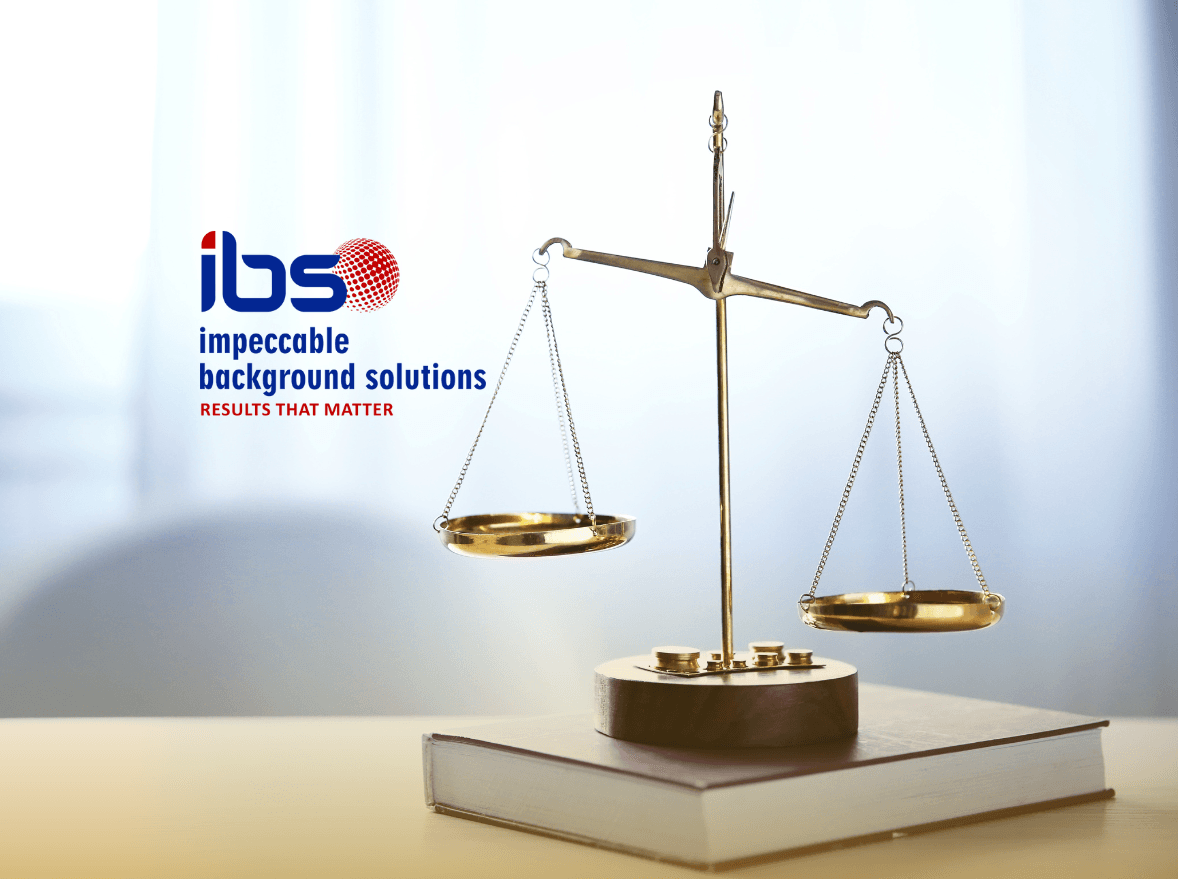In today’s digital age, where personal information is easily accessible and privacy concerns are at an all-time high, background check services have become increasingly popular. These services offer individuals and businesses the opportunity to gather information about a person’s criminal history, employment records, and more.
They promise peace of mind and security, but what happens when things go wrong? In this blog post, we will delve into the world of legal complaints surrounding background check services, shedding light on the potential pitfalls and consequences that users may face.
This post aims to explore the various legal issues that arise in these situations, shedding light on the rights and recourse available to those affected. So, whether you’re an employer seeking the truth about potential candidates or an individual who has experienced the negative consequences of a flawed background check, join us as we navigate the complex world of legal complaints surrounding background check services.
The Legal Complaints Surrounding Background Check Services – What You Need to Know
The Rise of Background Check Services

The rise of background check services has revolutionized the way businesses and individuals verify information about potential employees or individuals they are dealing with. With the increasing need for security and trust, background checks have become an essential part of the hiring process and personal safety measures.
Legal complaints surrounding background check services have also been on the rise. While these services offer a convenient way to access information, they are not without their challenges. Some individuals have raised concerns about the accuracy of the information provided by these services, leading to potential legal complications.
Promises of Accuracy and Reliability: Understanding the Claims

When it comes to background check services, accuracy and reliability play a crucial role. In this blog post, we will delve into the promises made by these services and explore the claims they make regarding their accuracy and reliability.
Legal complaints surrounding background check services have become increasingly common, raising concerns about the credibility of these providers. As individuals and businesses rely on background checks to make informed decisions, it is important to understand the claims made by these services and how they ensure accuracy and reliability.
One of the main promises made by background check services is the accuracy of their reports. They claim to provide comprehensive and up-to-date information about an individual’s criminal records, employment history, and other relevant data. However, legal complaints have revealed instances where inaccurate or outdated information has been included in these reports, leading to potential harm for individuals and damage to their reputation.
To address these issues, background check services have implemented various measures to enhance the accuracy of their reports. They often use advanced technology and multiple data sources to gather information, ensuring a more comprehensive and reliable outcome.
Additionally, many providers have established rigorous quality control processes to verify the accuracy and authenticity of the data they collect. These measures are intended to minimize errors and provide users with reliable information that can be trusted for important decision-making.
Reliability is another crucial aspect promised by background check services. Users expect timely and consistent results when they utilize these services. However, legal complaints have highlighted cases where delays in report delivery or incomplete information have caused inconvenience and frustration for users.
To address these concerns, background check services strive to optimize their processes and enhance their systems to ensure reliable and timely results. They invest in robust infrastructure and efficient data management systems to streamline their operations and reduce any potential delays. Additionally, they often provide customer support channels to address any issues or concerns that users may have, further enhancing the reliability of their services.
Legal Obligations and Responsibilities of Background Check Service Providers

Background check service providers play a crucial role in today’s society by providing essential information about individuals. However, with this critical responsibility comes legal obligations and responsibilities that these service providers must adhere to.
One of the primary legal obligations of background check service providers is to ensure compliance with applicable laws and regulations. These laws vary depending on the jurisdiction, but typically include guidelines on data privacy, consumer protection, and fair credit reporting. Service providers must stay updated with these regulations and implement appropriate measures to protect the rights and privacy of individuals being subjected to background checks.
In the context of legal complaints, one common issue that arises is the accuracy of the information provided by background check service providers. Accuracy is crucial because incorrect or outdated information can lead to severe consequences for individuals. If a service provider fails to take reasonable steps to ensure the accuracy of the information they provide, they may face legal action from affected individuals.
Another legal obligation of background check service providers is to obtain proper consent from individuals before conducting background checks. Consent is a fundamental aspect of privacy laws, and service providers must inform individuals about the purpose and scope of the background check and obtain written consent. Failure to obtain proper consent can result in legal complaints and potential lawsuits.
Furthermore, background check service providers must handle sensitive information with utmost care and maintain strict data security measures.
Data breaches can have severe consequences, both for the affected individuals and the reputation of the service provider. Legal obligations require service providers to implement robust security protocols to protect personal information from unauthorized access and prevent data breaches.
In addition to these obligations, background check service providers must also provide clear and accurate disclosure to individuals about their rights and options for disputing the information provided. This includes informing individuals about their right to access and correct their personal information and providing guidance on the dispute resolution process. Failure to provide adequate disclosure can lead to legal complaints and potential penalties.
Types of Legal Complaints Against Background Check Services

Background check services are an essential part of the hiring process for many businesses. These services allow employers to screen potential employees for criminal records, employment history, and other relevant information. However, like any industry, background check services are not immune to legal complaints. In this blog post, we will explore some of the types of legal complaints that can arise against background check services.
- Inaccurate or Outdated Information: One common legal complaint against background check services is the inclusion of inaccurate or outdated information in their reports. This can have serious consequences for individuals who may be denied employment or housing based on false information. Laws such as the Fair Credit Reporting Act (FCRA) require background check services to ensure the accuracy of their reports and provide individuals with an opportunity to dispute any errors.
- Violation of Privacy Laws: Background check services are also subject to privacy laws, which restrict the type of information that can be collected and shared. If a background check service gathers and discloses sensitive information without proper consent or in violation of privacy laws, they may face legal complaints. It is important for these services to have robust data protection measures in place and obtain appropriate consent from individuals before conducting a background check.
- Failure to Comply with FCRA Requirements: As mentioned earlier, the FCRA sets strict guidelines for background check services. These guidelines include providing individuals with a copy of their report and notifying them if adverse action is taken based on the report’s findings. Failure to comply with these requirements can result in legal complaints and potential lawsuits against the background check service.
- Discrimination: Background check services must adhere to anti-discrimination laws when conducting screenings. If a service disproportionately targets certain individuals or uses discriminatory criteria in their screening process, they may face legal complaints. It is crucial for background check services to ensure that their processes are fair and unbiased.
- Lack of Transparency: Another common legal complaint is the lack of transparency in the background check process. Individuals may feel that they were not adequately informed about the screening process or that they were not given the opportunity to review and dispute the information included in their report. Background check services should strive to be transparent in their procedures and provide clear and concise information to individuals.
Inaccurate Information: The Impact on Job Opportunities

Inaccurate information can have a significant impact on job opportunities. When it comes to background check services, legal complaints surrounding inaccurate information can further complicate the situation. Job seekers rely on accurate background checks to secure employment, and any false or misleading information can result in missed opportunities or even job loss.
Employers often use background checks as a crucial part of their hiring process. These checks help them assess the suitability of candidates and ensure a safe and reliable workforce. However, if inaccurate information is provided by background check services, it can lead to incorrect judgments about job applicants.
Legal complaints arising from inaccurate information in background checks can have severe consequences for both the job seeker and the employer. For job seekers, it can be frustrating and disheartening to lose out on job opportunities due to false information on their records. It can also tarnish their reputation and make it harder to secure future employment.
Employers, on the other hand, may face legal repercussions if they base their hiring decisions on inaccurate information. They have a responsibility to ensure that the information they receive is reliable and up-to-date. Using background check services with a history of legal complaints can be a risky endeavor for employers, potentially leading to costly lawsuits and damage to their reputation.
To address these issues, it is crucial for background check services to prioritize accuracy and reliability. They must have robust systems in place to verify the information they provide, ensuring that it aligns with the candidate’s actual background. Regular audits and quality control measures can help minimize the risk of inaccuracies and legal complaints.
Job seekers should also be proactive in reviewing their own background information. They can request copies of their background checks to verify their accuracy and address any discrepancies promptly. By staying informed and taking action, job seekers can mitigate the impact of inaccurate information on their job opportunities.
Reputational Damage: Dealing with False Accusations

False accusations can have a severe impact on an individual’s reputation, especially when they involve legal complaints. In today’s digital age, where information travels at lightning speed, it’s crucial to know how to handle and mitigate the damage caused by false allegations.
When faced with false accusations, the first step is to remain calm and composed. It can be disheartening to be falsely accused, but reacting impulsively can worsen the situation. Take a deep breath, assess the situation, and gather all the facts to build a strong defense.
One effective way to deal with false accusations is seeking legal advice. Consult with an attorney who specializes in defamation or reputation management. They can guide you through the legal process and help you understand your rights and options. Legal professionals are equipped to handle the intricacies of defamation cases and can provide valuable advice on how to navigate the situation.
It is important to document everything related to the false accusations. Keep a record of any communications, whether it’s email exchanges, social media posts, or text messages. These records can serve as evidence to prove your innocence and counter the false allegations.
If the false accusations are circulating online, it’s crucial to address them promptly. Engage in online reputation management by actively monitoring and responding to any defamatory content. Responding calmly and professionally can help in presenting your side of the story while maintaining your credibility.
Consider issuing a public statement to address the false accusations. Craft a well-worded statement that presents the facts clearly and concisely. Avoid engaging in a public back-and-forth argument, as it may only escalate the situation further. Instead, focus on setting the record straight and providing any relevant evidence that supports your innocence.
Depending on the severity of the false accusations, you may consider taking legal action for defamation. Consult with your attorney to evaluate the possibility of filing a lawsuit. Defamation laws differ from jurisdiction to jurisdiction, so it’s essential to understand the legal implications and potential outcomes before proceeding.
In addition to legal action, building a positive online presence can help counter the impact of false accusations. Focus on creating and sharing quality content that highlights your expertise and integrity. Engage with your audience and encourage satisfied clients or colleagues to leave positive reviews or testimonials.
Identity Theft: The Consequences of Faulty Background Checks

Identity theft is a growing concern in today’s digital age. As technology advances, so do the methods used by criminals to steal personal information. One area where this is particularly concerning is in faulty background checks. These checks are supposed to provide an accurate and comprehensive overview of an individual’s history, but when they are flawed, the consequences can be severe.
One of the main consequences of faulty background checks is the potential for individuals with criminal records to slip through the cracks and gain access to sensitive information or positions of trust. This can have serious implications for companies and organizations that rely on background checks to make informed hiring decisions. If an employer unknowingly hires someone with a criminal history, it can put employees and customers at risk, and also expose the company to legal liabilities.
Another consequence of faulty background checks is the impact on individuals who have been falsely identified as having a criminal history. This can lead to difficulties in finding employment, obtaining loans, or even renting a home. Innocent individuals may find themselves facing discrimination and mistrust due to inaccurate information reported on their background checks. These false records can be incredibly difficult to correct, causing long-lasting damage to a person’s reputation and livelihood.
Legal complaints surrounding background check services are on the rise. Many individuals who have been affected by faulty background checks are taking legal action against the companies responsible for conducting these checks. These complaints range from negligence to violations of the Fair Credit Reporting Act (FCRA), which outlines the rights of consumers and the responsibilities of background check companies. It is crucial for these companies to ensure the accuracy and reliability of their services to avoid legal repercussions.
Seeking Legal Recourse: Options for Affected Individuals and Companies

When it comes to legal complaints surrounding background check services, affected individuals and companies have several options for seeking legal recourse. These options can help them address any issues they may have encountered during the background check process. It is important to understand these avenues in order to protect one’s rights and interests.
One option for affected individuals and companies is to file a complaint with the company that conducted the background check. This can be done by contacting their customer service or support department and explaining the issue at hand. It is important to provide any relevant documentation or evidence to support the complaint. The company may conduct an internal investigation and take appropriate action to rectify the situation.
Another option is to seek legal representation and file a lawsuit against the background check service provider. This can be done if the affected individual or company believes that their rights have been violated or that the background check was conducted in a negligent or unlawful manner. In such cases, it is advisable to consult with an attorney who specializes in employment or consumer law to understand the legal options available.
Affected individuals and companies can also report the issue to regulatory bodies or government agencies that oversee background check services. These agencies may have the authority to investigate complaints and take disciplinary action against the service provider if necessary. It is important to gather all relevant information and documentation before filing a complaint with these agencies.
In some cases, affected individuals and companies may also consider joining or initiating a class-action lawsuit against the background check service provider. This can be an effective way to seek justice and compensation for a large group of individuals who have been similarly affected by the service provider’s actions or negligence. However, it is important to consult with an attorney to understand the feasibility and requirements of pursuing a class-action lawsuit.
Ultimately, the best course of action for seeking legal recourse will depend on the specific circumstances of the case. It is advisable to consult with an attorney who can provide guidance and help navigate the legal process. By taking appropriate action, affected individuals and companies can protect their rights and hold background check service providers accountable for any wrongdoing or negligence.
The Role of Regulation: Government Oversight and Industry Standards

Regulation plays a crucial role in ensuring the proper functioning of industries and protecting consumer rights. In the case of background check services, government oversight and industry standards are essential to address legal complaints effectively.
Government oversight is necessary to monitor and regulate the operations of background check service providers. By implementing regulations, the government can ensure that these services adhere to certain ethical and legal standards. This oversight helps in safeguarding individuals’ privacy and preventing any misuse of personal information during the background check process.
Industry standards, on the other hand, are guidelines set by professional organizations or associations within the background check industry. These standards outline best practices, procedures, and quality requirements that companies offering background check services should follow. Adhering to industry standards helps ensure consistency, accuracy, and fairness in conducting background checks.
The role of regulation becomes particularly crucial when it comes to addressing legal complaints related to background check services. With proper oversight, individuals who believe their rights have been violated or have encountered issues with a background check can file complaints. These complaints can trigger investigations and enforcement actions, leading to accountability and the resolution of any legal concerns.
Regulation also helps establish a level playing field within the background check industry. By setting common standards and regulations, the market becomes more transparent and trustworthy, benefiting both consumers and service providers. It helps in weeding out unscrupulous operators and ensures that only reliable and ethical companies thrive in the industry.
Moreover, regulation contributes to the continuous improvement and innovation within the background check sector. As technology evolves and new challenges arise, regulations can adapt to address emerging issues. This ensures that the industry stays relevant and effective in providing accurate and reliable background information.
Conclusion: Navigating the Complex World of Legal Complaints in Background Check Services
Legal complaints can be a significant concern when it comes to background check services. Whether you are an individual seeking a background check or a company looking to hire, it is important to understand the potential legal issues that may arise.
Legal complaints in background check services can be a complex and challenging aspect to navigate. Compliance with applicable laws, ensuring accuracy and completeness of information, respecting individuals’ rights, and having an effective response strategy in place are key elements to addressing and mitigating legal complaints.
By prioritizing legal compliance and implementing best practices, background check service providers can navigate this complex landscape and provide reliable and legally compliant services to their clients.
Ensure a safe and trustworthy background check with Impeccable Background Solutions. With our reliable background check services on your side, you can be assured that your organization’s background checks are carried out professionally and adhere to legal and ethical standards.
Reach out and send us a message through our online channels or call us at 404-796-8419 and find out for yourself the difference that a reliable background check solutions provider can give your company.





